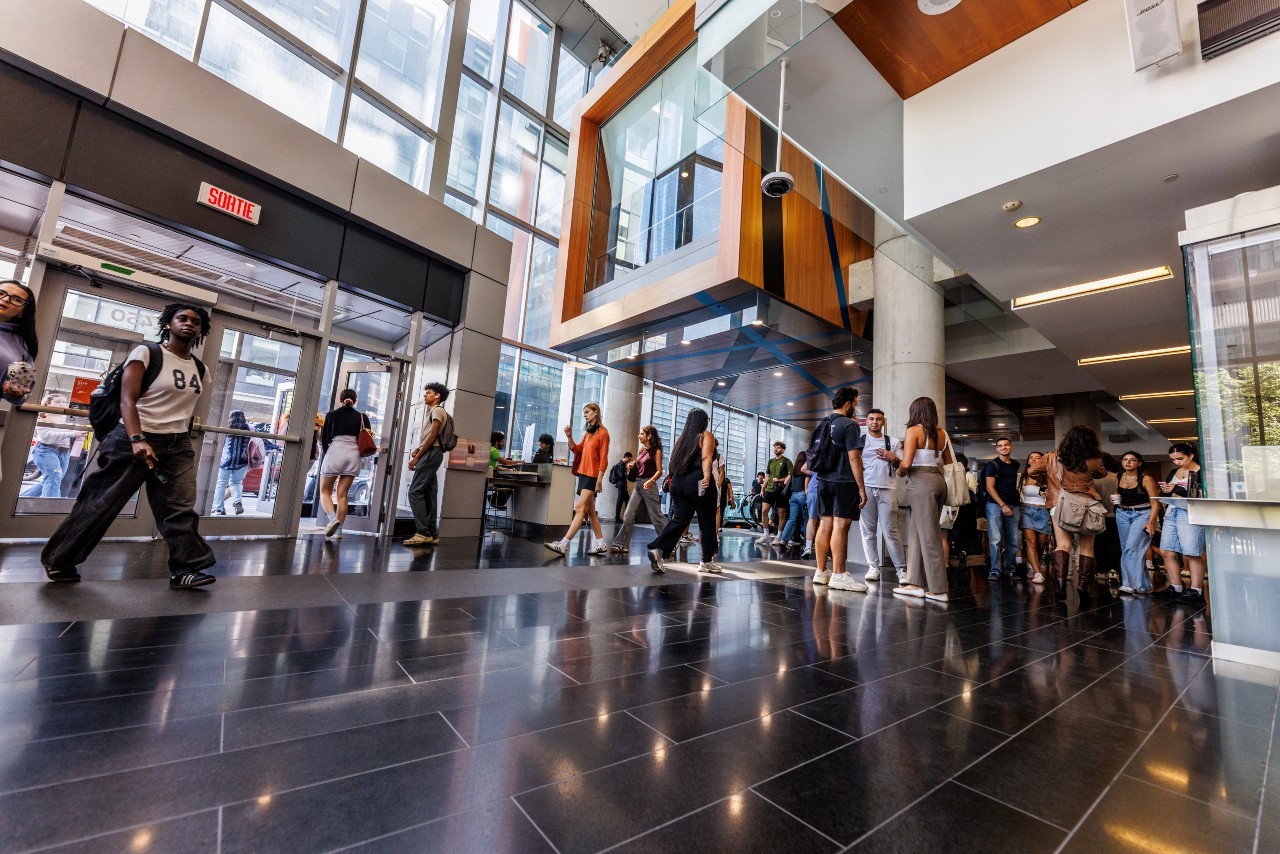article
How universities can better support student mental health

University students are facing more than academic pressure—they’re navigating a complex mix of personal, social and financial stressors that impact their mental health throughout the year.
The Emotions Calendar Project, a multi-year study led by Erin Barker (Department of Psychology, Concordia University) and initiated by Gaya Arasaratnam (former Director of Campus Wellness and Support Services at Concordia, now at UBC Okanagan), offers new insights into how distress unfolds across the academic calendar—and what institutions can do to respond.
Alexandra Panaccio, a professor in the Department of Management at the John Molson School of Business, is a member of the project’s research team. She contributed to a project that followed three cohorts of undergraduate students (over 2,500 students in total) from 2020 to 2022 across each academic year. The findings point to practical strategies for improving student support services.
Make support visible, accessible and timely
Students reported the highest levels of anxiety and depressive symptoms in the first six weeks of the fall semester. Well-being improved over the winter break, but the pattern of increasing distress returned in January.
Students most affected included those with prior mental health diagnoses, stressful life events and those identifying as gender minorities, visible minorities, or younger students.
Action: Wellness programming should start early in the semester and continue consistently. Waiting until midterms or finals may be too late for many students.
Although academic pressure was the most frequently reported stressor, students also struggled with managing free time, maintaining friendships and financial concerns. These overlapping stressors often led to role strain—feeling pulled in too many directions with too little time.
Students who reported higher stress in these areas also showed elevated symptoms of anxiety and depression.
Action: Expand wellness initiatives to include time management, peer support, and financial literacy. These areas are just as critical to student well-being as academic success.
The study also explored what helped students succeed in the face of stress. Key factors include strengths in managing emotions and supportive social networks. Students who felt a sense of belonging and were better able to manage negative emotions experienced lower academic stress and better mental health outcomes later in the academic year.
Additionally, students with a strong sense of purpose in life were more likely to use adaptive coping strategies, specifically acceptance and positive reframing. These strategies were related to lower levels of distress and helped maintain their sense of direction.
Action: Create opportunities for students to build community and reflect on their goals. Programs that foster meaning-making and connection can strengthen resilience.
Despite high levels of distress, many students don’t seek help. The Emotions Calendar team tested a low-intensity intervention that encouraged self-reflection and matched students with relevant campus resources. This approach increased help-seeking.
Simple tools—like digital check-ins or personalized resource guides—can make a big difference. The key is making support visible, accessible, and timely.
Align programming with student life
The Emotions Calendar Project highlights the need for a holistic, integrated approach to student support. Universities already offer a wide range of services, but these are often siloed. To truly support students, institutions must align programming with the rhythms of student life and ensure services are easy to access and navigate.
For campus leaders and practitioners, this means rethinking how support is delivered—starting earlier, addressing a broader range of stressors and making help-seeking easier.
Because when universities understand the patterns of student distress, they can better design the patterns of support.
Discover more about the Emotions Calendar Project.
Researcher team, staff and members of the Lifespan Well-Being Laboratory who contributed to this research:
- Marina M Doucerain
- Cat Tuong Nguyen
- Roisin O’Connor
- Alexandra Panaccio
- Debora Rabinovich
- Victoria Lane
- Wendy Ing
- Doris Edmond
- Shichen Fang
- Jessica Mettler
- Catie Jeon
- Amanda Marlandis
- Daria Karbainova
- Ayse Turkoglu
- Jessica Spoor
- Chelsea Cuffaro
- Alexandra H. Borrelli
- Tanya Guzelian




